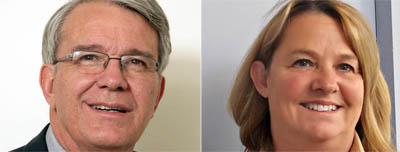Latest News Archive
Please select Category, Year, and then Month to display items
22 May 2020
|
Story Nitha Ramnath
![]()
A Virtual celebration of Africa Month
On 25 May 2020, Africa will celebrate the 57th anniversary of the founding of the Organisation of African Unity. A central tenet of the organisation, which was the predecessor of the African Union, is African solidarity. Member states undertook to coordinate and intensify their cooperation and efforts to achieve a better life for the people of Africa. The University of the Free State (UFS) has a long tradition of commemorating Africa Day and the ideas underpinning it. Every year, diverse events aimed at advancing African unity and solidarity take place during Africa Month – traditionally, the highlight is the Africa Day Memorial Lecture hosted by the University's Centre for Gender and Africa Studies.
This year, celebrating African unity through significant events involving the physical presence of a large number of people, will likely be impossible. COVID-19 is ravaging the world and Africa may become one of the world regions worst affected by the consequences of the virus. Social distancing may be difficult to achieve in a continent with densely populated urban centres that often feature large informal settlements. Besides, the economies of African nations are not as robust as those of other world regions. The challenge that Africa is facing, appears to be one that can only be mastered by its people acting in solidarity and unity. The continent has already developed an Africa Joint Continental Strategy for COVID-19 Outbreak to combat the virus, and an Africa Taskforce for Coronavirus has been established. The ideas of African togetherness and the underpinning philosophy of Ubuntu may be critical for strengthening African solidarity at a time when it may be more relevant than ever.
The commemoration of Africa Day takes a different theme each year. This year, the UFS 2020 Africa Month celebrations will take a virtual format, with the theme of ‘Africa together forever’ underpinned by the COVID-19 global pandemic. The theme is particularly significant considering the context of the African continent; and only through the demonstration of solidarity and unity can Africa overcome the challenges of the global pandemic.
The University will host a variety of cultural and intellectual contributions on the dedicated UFS virtual Africa Month website. On Africa Day (25 May 2020), a virtual Africa Day function, which will be posted on the website, will conclude the Africa Month commemorations.
The diverse contributions to the 2020 virtual Africa Month activities will highlight the University’s commitment towards creating a diverse, challenging intellectual environment. The UFS strives as a research-led university, to provide an environment in which new ideas are incubated and debated; contributing towards its transformation process and African unity.
UFS welcomes two new deans in the faculties of Theology and Law
2014-08-04
 |
The university council has approved the appointment of two deans: Prof Fanie Snyman, at the Faculty of Theology and Prof Caroline Nicholson, at the Faculty of Law.
Both professors offer the university a wealth of knowledge and experience in research and teaching.
Prof Fanie Snyman
Prof Snyman joined the university in 1984 as a senior lecturer in the Department Old Testament. His career followed a steadfast ascent which led him to attaining the title of professor and head of department the following year. On 1 July 2013, Prof Snyman took on the additional role of acting dean of the faculty.
As dean, he set out a clear vision of academic leadership with four primary focus areas: research, teaching and learning, internationalisation and regional engagement.
He is the author of eight books and contributed to seven internationally- and twelve nationally-published books. He has published nine articles in international journals and about 60 more in accredited journals.
Prof Snyman proposes to bring staff members together to extensively rethink and reposition the faculty in terms of identity, transformation and the way forward. “We live in a complex world, characterised by uncertainty and in constant change. This calls for complex but also innovative solutions,” he says.
Prof Caroline Nicholson
Prof Caroline Nicholson was born in Scotland and came to South Africa as a young child. She obtained her BProc and LLB degrees at the University of the Witwatersrand and completed her articles of clerkship at Chernin’s in Hyde Park Corner, Johannesburg. Prof Nicholson was admitted as both an attorney and notary public of the then Supreme Court of South Africa in 1986.
In 1986 she joined the University of South Africa (UNISA ) as a lecturer and remained there until 1999. During this time she completed an LLM in Banking Law and an LLD in Comparative Conflict of Laws – focusing on international parental child abduction. During the same year she moved to the Faculty of Law at the University of Pretoria where she worked for the last fifteen years. In 2003 she completed a Postgraduate Diploma in Alternative Dispute Resolution (ADR) and has an abiding interest in ADR, especially within the Family Law context.
Prof Nicholson has produced numerous articles and research presentations on a variety of legal subjects. Her primary areas of interest are, however, legal education and child law. She is known both nationally and internationally for her research contributions.